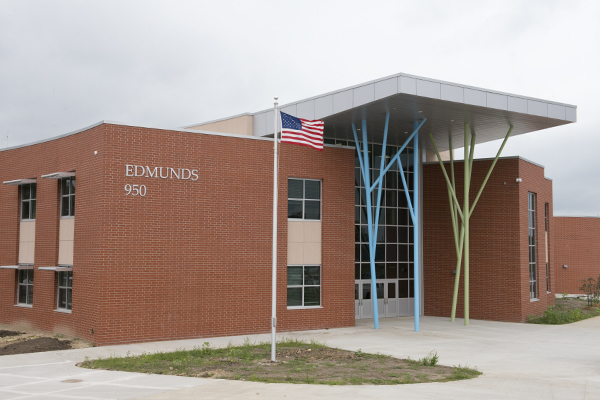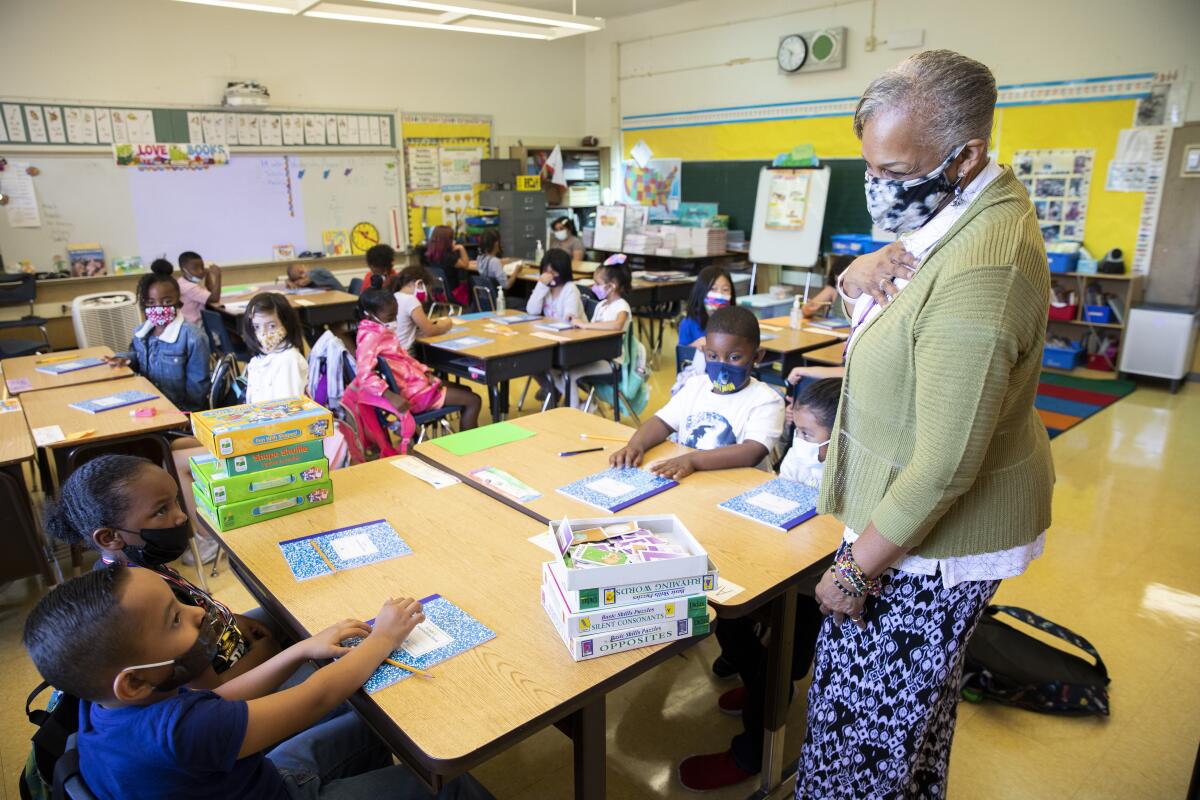Exactly How Schools Play a Vital Function in Shaping Future Leaders and Innovators
Institutions are critical in forming future leaders and pioneers via the cultivation of important reasoning, creativity, and collaboration. By incorporating project-based learning and interdisciplinary research studies, educational establishments challenge trainees to examine and synthesize intricate info. Educators function as coaches, directing students and supporting their potential, while extracurricular tasks better develop management abilities and durability. This vibrant atmosphere not only concentrates on individual toughness but also stresses the importance of teamwork, vital for browsing tomorrow's challenges. Just how specifically do these components interaction to create a durable foundation for future success?
Promoting Important Assuming
In today's rapidly progressing globe, fostering vital assuming within educational establishments has come to be paramount. As culture grapples with progressively complex worldwide difficulties, the capability to examine, assess, and synthesize information is important. Colleges play an essential function in establishing these skills, preparing students to navigate and attend to multifaceted problems with educated, reasoned choices.
To cultivate critical thinking, instructors utilize different pedagogical approaches that urge active understanding and intellectual involvement. Class discussions, problem-based knowing, and Socratic questioning are important in promoting reflective and logical idea processes. By testing pupils to interrogate presumptions and take into consideration multiple viewpoints, these approaches ensure a much deeper understanding of subject issue beyond memorizing memorization.
In addition, incorporating crucial thinking across the educational program enhances its value and applicability in diverse contexts. Topics such as maths, science, background, and literary works each deal one-of-a-kind possibilities to establish students' essential faculties. For instance, evaluating historic events requires examining sources and recognizing context, while clinical inquiry needs strenuous hypothesis screening and evidence-based reasoning.
Ultimately, instilling essential thinking abilities in students equips them with the cognitive devices required for long-lasting understanding and flexibility. It is via this foundational skills that future leaders will certainly have the ability to introduce, address troubles, and add meaningfully to society.
Encouraging Creative Thinking
Welcoming creativity within instructional structures galvanizes pupils to assume past standard limits and check out cutting-edge remedies. By incorporating artistic endeavors and creativity exercises into the educational program, institutions grow a setting where creativity and imaginative idea are valued. This approach not only improves the educational experience however additionally equips students with the capability to deal with real-world obstacles in unique ways.
University can cultivate creativity via varied ways such as project-based learning, interdisciplinary researches, and the unification of arts and innovation. Project-based learning, for example, encourages trainees to use their expertise in useful, usually collaborative, tasks that demand creative analytic abilities. Interdisciplinary research studies enable pupils to attract links in between different subjects, consequently expanding their point of views and improving their imaginative abilities.
In addition, offering pupils with possibilities to engage with arising modern technologies, such as coding and electronic layout, further supports their imaginative possibility. These tasks motivate trainees to experiment, stop working, and iterate, which are vital components of the creative procedure (Save Temecula Schools). By preserving an encouraging setting where experimentation is motivated, institutions can ensure that trainees establish the self-confidence to seek innovative concepts
Essentially, supporting imagination in academic settings is vital for shaping future leaders and trendsetters efficient in dealing with intricate worldwide concerns with resourcefulness.
Encouraging Cooperation

Applying group-based discovering modules and cooperative projects enables pupils to experience the dynamics of team effort firsthand. This not only prepares them for the collective nature of modern-day offices yet additionally nurtures management high qualities as they frequently have to handle functions such as job managers or group organizers. In addition, cooperation in the classroom can damage down social obstacles and advertise inclusivity, making sure that each pupil feels valued and listened to.
Moreover, incorporating innovation can additionally sustain collective initiatives. Tools like shared electronic work spaces and interactive systems make it possible for pupils to collaborate successfully, also outside the class. As students create these collective abilities, they are much better furnished to deal with complex challenges and introduce, laying the groundwork for their future roles as leaders and innovators.
Function of Teachers as Advisors

Mentorship entails individualized interest, where instructors recognize and support individual strengths and address weaknesses. Save Temecula Schools. Through individually communications, teachers can customize their guidance and support to satisfy each trainee's one-of-a-kind needs, fostering a sense of confidence and durability. This tailored strategy grows a development attitude, urging trainees to watch failings as opportunities for finding out and development
Additionally, instructors work as function versions, demonstrating the worths of perseverance, empathy, and honesty. Their attitudes and activities give a blueprint for trainees to imitate, instilling a feeling of ethical responsibility and social awareness. try this By creating a encouraging and inclusive classroom setting, educators enable students to create interpersonal skills that are essential for efficient management.
Basically, the mentorship provided by educators lays a fundamental structure for the growth of future leaders, equipping them with the knowledge, abilities, and values required to master an ever-evolving world.
Influence of After-school Activities
When incorporated successfully right into the instructional structure, extracurricular activities significantly enhance student these details advancement and management capacity. These activities supply pupils with opportunities to check out passions beyond the traditional educational program, fostering a well-rounded skill set.
Moreover, extracurricular involvement encourages imagination and innovation. Trainees engaged in music, dramatization, or argument clubs discover to believe critically and method issues from varied point of views. These experiences impart self-confidence, making it possible for trainees to articulate their concepts and take effort in numerous settings. By working together with peers from different backgrounds, trainees likewise establish compassion and communication skills, important traits for future leaders.
Research study indicates that pupils involved in such programs tend to have greater grades and better attendance documents. Thus, colleges that focus on a balanced method to education, incorporating robust extracurricular programs, are extra likely to produce innovators and leaders equipped to meet the difficulties of the future.

Final Thought
In final thought, institutions dramatically form future leaders and trendsetters by nurturing crucial thinking, creative thinking, and partnership among trainees. By promoting a helpful atmosphere that values individual toughness and teamwork, institutions furnish trainees with the essential skills to navigate future challenges and drive innovation.
As students establish these collective skills, they are much better outfitted to take on intricate difficulties and innovate, laying the foundation for their future functions as pioneers and leaders.
By fostering critical reasoning and analytical skills, teachers help students browse intricate difficulties, preparing them for leadership functions in numerous fields.
By collaborating with peers from various histories, pupils additionally establish compassion and communication abilities, vital characteristics for future leaders.
In conclusion, schools dramatically form future leaders this link and trendsetters by supporting vital thinking, creative thinking, and collaboration among pupils. By promoting a helpful atmosphere that values individual toughness and teamwork, schools gear up pupils with the required skills to navigate future obstacles and drive development.
Comments on “Explore the Challenges Facing Our Area: Save Temecula Schools”